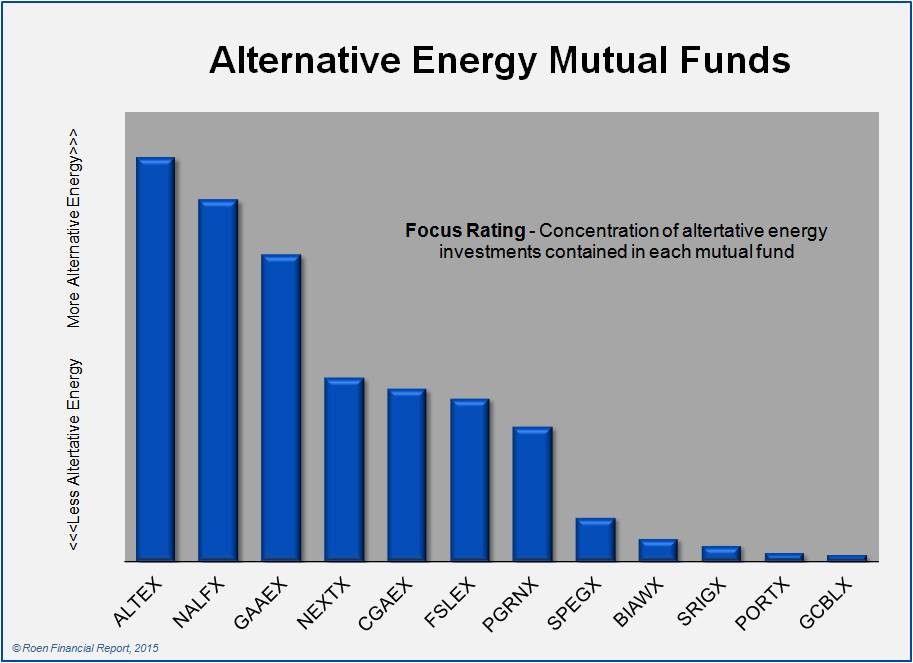10 SRI Fund Companies Every Green Investor Should Know
Post on: 11 Май, 2015 No Comment

March 14, 2011 — 11:55am
So you want to invest socially responsibly, but aren’t really sure how to do it. Maybe you have a company retirement plan with SRI options or maybe you’ve saved some money and decided you want to put it to work. For those new to investing, mutual funds can be a good place to start.
What’s a mutual fund, you ask? Well, it’s an investment strategy where investors pool their money together to be run by a professional manager. Mutual funds can invest in stocks, bonds or other types of securities. The benefits of mutual funds include: active management by a professional manager, diversification across several different investments and often low minimums to invest.
With green investing becoming more and more popular, there are a lot of SRI fund options now available to investors. I thought it’d be useful to provide a list of the 10 largest and most widely available SRI mutual fund companies. These are the fund families that have been around for a while, that know their way around a wind turbine or two, the Green Dream Team, if you will.
I’ve provided a link to each company’s website embedded in their names. Click on the links, take a look around and learn about how each company approaches SRI.
Calvert – Founded in 1976, Calvert offers the widest selection of socially responsible mutual funds in the SRI universe. They manage $14.5 billion for over 400,000 investors across several different stock and bond strategies. With 34 CSR-related resolutions filed with companies on behalf of its shareholders so far in 2011, Calvert is also one of the most active mutual fund companies when it comes to shareholder advocacy.
Domini – This asset management company was founded in 1990 by Amy Domini. In 1989, they launched the Domini 400 Social Index, an index of 400 U.S. corporations selected based on a wide range of social and environmental standards, one of the first of its kind. Domini is also very active when it comes to filing CSR-related resolutions on behalf of shareholders.
Pax World – Founded in 1971 by United Methodist Ministers Rev. Dr. Elliot Jack Corbett and Dr. Luther Tyson, Pax World was originally started for investors who wanted to avoid investing in companies that provided weapons or supplies for the Vietnam War. Over the years, they have expanded their strategies to include screening for several other CSR issues.
Ariel – One of the few investment firms whose founder and CEO is African American, Ariel was started by John W. Rodgers and one other employee in 1983. Ariel now has 71 employees and manages $5.5 billion across four fund strategies. They are known primarily as stock picking shop – their four fund offerings invest exclusively in stocks (no bonds).
Green Century – Started in 1991, Green Century is a bit unusual in that it was founded by a group of non-profit environmental advocacy organizations or state PIRGs (public interest research organizations). A complete list of the organizations that own Green Century can be found here. Investment management fees go directly to these organizations and, according to their website, are used to fund environmental awareness public interest campaigns.
Parnassus – Founded in 1984, this San Francisco-based fund company manages over $4.8 billion in assets invested across five SRI strategies. Parnassus offers both stock and bond investment strategies.
Walden – Founded in 1975, Walden helped launch the first U.S. mutual fund with anti-apartheid criteria. Now offering three SRI mutual funds, Walden is a division of Boston Trust and Investment Management Company.
Portfolio 21 – Founded in 1982, this Portland-based firm runs a single fund strategy designed to address the ecological risks and opportunities of the investment process in the 21st century. According to Morningstar, the fund has approximately $420 million invested .
Winslow – Founded in 1983, Winslow has two SRI fund offerings, the Green Growth Fund and the Green Opportunities Funds.
Appleseed – The Appleseed Fund, launched in 2006, is the SRI fund that famously decided to exclude too-big-to-fail banks from their portfolio in 2010. Investment decisions are made by Pekin Singer Strauss asset management. According to Morningstar, the fund has approximately $150 million invested .
In addition to the above, some of the larger “traditional” mutual fund companies provide their own SRI offerings. It’s important to note that unlike the 10 fund companies listed above (whose core business is SRI), these guys provide several other non-SRI funds for clients.
Before investing, it’s important to do your research: check out the fund’s website to see what kind of SRI screens they use, read the fund prospectus and make sure the investment is appropriate for you.
As always, if you have questions or need help, contact a professional advisor with experience in socially responsible investing.














